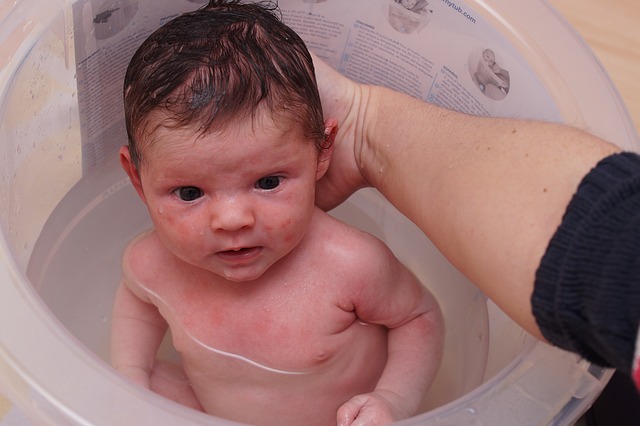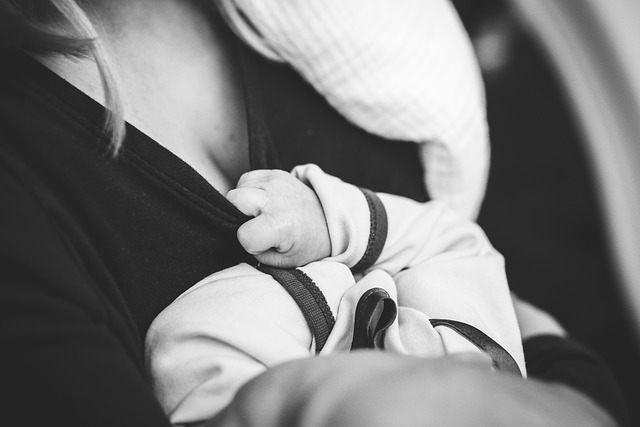Your newborn is fragile and is prone to infections. To deal with this, new parents have to be cautious about every move they make as they do not want their little munchkin to experience any kind of pain. Your newborn deserves to be growing in a healthy body as this stage is the foundation of his upcoming life.
Handling a newborn becomes an intimidating experience when the unexpected complications start popping up and make yours and your child’s life challenging. But is it really hard to keep a newborn hale and hearty? I don’t think so! There are some very simple tips that can be followed so that health complications in your baby can be bypassed.
Hygiene: The first and foremost priority:- New parents must not compromise on the hygienic conditions around their babies. Always try to keep the house germ free by taking all the safety precautions. It has been observed that a mild unhealthy environment in the house leads to grave health concerns for infants.

Keeping your hand always sanitized and teaching other family members about requirements of the safe and clean environment near your baby should be of utmost importance for you.
Make your child burp: Burping is important because it shows that your child’s digestive system is working properly. Although burping after every meal is not necessary. Consult your doctor if your child does not burp enough and ask them to suggest ways you can make your child release the gas that may have accumulated in the tummy. Your child should not experience intestinal gas problems that can cause distress in his health.
Never ever miss out on vaccination: Here we are not only talking about your child, but you too! Newborns are eligible for Hepatitis B vaccination and after the span of 4 years they need to be vaccinated for the rest doses. Parents also must consult with their doctors regarding the need of vaccination for themselves.

Getting a flu shot is what is recommended to almost all newly become parents. Moreover, all adults in the house should get immunized themselves to lower the risk of any infection for the baby.
Bathing schedule: Bathing the newborn every day is not at all recommended. During the first year, a bath two or three times in a week is more than sufficient. Frequent bathing can lead to dry skin and other health issues.

Also, using an appropriate bathing regime should be followed and only safe products should be used for your babies. For example: A clean washcloth and extremely mild shampoos and soaps. Never ever opt scented items as these items contain chemicals.
Extremely crowded places: A big NO- NO! We are not saying to keep your baby at home during the complete first year, but taking your child to crowded places such as markets and any packed area like restaurants would not be a great idea. You do not want your child to inhale the germs that those adults have left there! According to an esteemed Australian doctor, a child can easily catch infections from these locations and can get ill. And if the temperature reaches more than 100.4 , he will have to be admitted to the hospital. However, you can certainly take your little sweetheart to parks for a small stroll.
Breastfeed your child: The primary food for your child is your breast milk. This milk contains all the nutrients your child needs to grow. Moreover, a mother transfers her antibodies to the child via her breast milk and provides immunity to her child.

However, if some mothers cannot breastfeed their little one, they can certainly opt for baby milk formulas. Before resorting to any mild formula for your child, do not forget to take the suggestion of your doctor.
Make strict rules for your infant: Everyone wants to hold, hug and kiss your cute little one, but as a responsible parent you need to set boundaries for your child. After all you are the parents and you do not want your dearest one to suffer. We understand that you would not want to be rude with others, but you can certainly request them to help you keep the baby safe. You can ask everyone to practice some rules while coming close to your baby.
Here are some simple tips for you! Instead of letting them kiss on the child’s face, you can tell them to do it on their feet. Or, instead of coming too close to your child’s face, you can tell them to keep an adequate gap between theirs and your child’s face’s positions. Also do not forget to screen those people first who wish to see your child.

